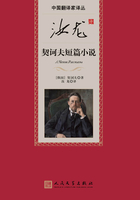Provost Baldwin held absolute sway in the University of Dublin for forty-one years. His memory is well preserved there. The Bursar still dispenses the satisfactory revenues which Baldwin left to the College. None of us ever can forget the marble angels round the figure of the dying Provost on which we used to gaze during the pangs of the Examination Hall.
Baldwin died in 1785, and was succeeded by Francis Andrews, a Fellow of seventeen years' standing. As to the scholastic acquirements of Andrews, all I can find is a statement that he was complimented by the polite Professors of Padua on the elegance and purity with which he discoursed to them in Latin. Andrews was also reputed to be a skilful lawyer. He was certainly a Privy Councillor and a prominent member of the Irish House of Commons, and his social qualities were excellent. Perhaps it was Baldwin's example that stimulated a desire in Andrews to become a benefactor to his college. He accordingly bequeathed a sum of 3,000 pounds and an annual income of 250 pounds wherewith to build and endow an astronomical Observatory in the University. The figures just stated ought to be qualified by the words of cautious Ussher (afterwards the first Professor of Astronomy), that "this money was to arise from an accumulation of a part of his property, to commence upon a particular contingency happening to his family." The astronomical endowment was soon in jeopardy by litigation. Andrews thought he had provided for his relations by leaving to them certain leasehold interests connected with the Provost's estate. The law courts, however, held that these interests were not at the disposal of the testator, and handed them over to Hely Hutchinson, the next Provost. The disappointed relations then petitioned the Irish Parliament to redress this grievance by transferring to them the moneys designed by Andrews for the Observatory. It would not be right, they contended, that the kindly intentions of the late Provost towards his kindred should be frustrated for the sake of maintaining what they described as "a purely ornamental institution." The authorities of the College protested against this claim. Counsel were heard, and a Committee of the House made a report declaring the situation of the relations to be a hard one. Accordingly, a compromise was made, and the dispute terminated.
The selection of a site for the new astronomical Observatory was made by the Board of Trinity College. The beautiful neighbourhood of Dublin offered a choice of excellent localities. On the north side of the Liffey an Observatory could have been admirably placed, either on the remarkable promontory of Howth or on the elevation of which Dunsink is the summit. On the south side of Dublin there are several eminences that would have been suitable: the breezy heaths at Foxrock combine all necessary conditions; the obelisk hill at Killiney would have given one of the most picturesque sites for an Observatory in the world; while near Delgany two or three other good situations could be mentioned. But the Board of those pre-railway days was naturally guided by the question of proximity. Dunsink was accordingly chosen as the most suitable site within the distance of a reasonable walk from Trinity College.
The northern boundary of the Phoenix Park approaches the little river Tolka, which winds through a succession of delightful bits of sylvan scenery, such as may be found in the wide demesne of Abbotstown and the classic shades of Glasnevin. From the banks of the Tolka, on the opposite side of the park, the pastures ascend in a gentle slope to culminate at Dunsink, where at a distance of half a mile from the stream, of four miles from Dublin, and at a height of 300 feet above the sea, now stands the Observatory. From the commanding position of Dunsink a magnificent view is obtained. To the east the sea is visible, while the southern prospect over the valley of the Liffey is bounded by a range of hills and mountains extending from Killiney to Bray Head, thence to the little Sugar Loaf, the Two Rock and the Three Rock Mountains, over the flank of which the summit of the Great Sugar Loaf is just perceptible. Directly in front opens the fine valley of Glenasmole, with Kippure Mountain, while the range can be followed to its western extremity at Lyons. The climate of Dunsink is well suited for astronomical observation. No doubt here, as elsewhere in Ireland, clouds are abundant, but mists or haze are comparatively unusual, and fogs are almost unknown.















